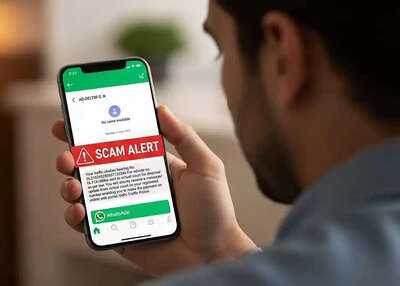E-Challan Scam: Fraudsters are sending fake links in the name of e-challans. Clicking on them could empty your account. Learn the right way to avoid these scams.
E-Challan Scam: These days, the e-challan system for violating traffic rules has become commonplace. Police now send challans directly to mobile numbers or emails, allowing people to pay fines online. However, cyber fraudsters are taking advantage of this very facility. Recently, several cases have come to light where people's bank accounts have been emptied by sending them fake e-challan links.
These messages appear to be genuine. People click on the links without thinking, and their personal information is stolen. This scam is spreading rapidly. Therefore, it's important to be vigilant and understand how this trick works and how to avoid it. Let's explain the methods.
This is how the e-challan scam works.
Scammers first target people who have violated traffic rules. They send an SMS or WhatsApp message stating that they have violated a traffic rule and must pay a fine.
This message includes a link that resembles a government website. Once a person clicks on this link, they are directed to a fake portal. Once they enter the requested information, such as bank details, card number, or OTP, the fraudsters steal their data and empty their bank account.
Don't click on any unknown link.
If you receive an e-challan message, don't immediately trust it. First, carefully check whether it includes your vehicle number and the exact violation. If not, the message is fake. The real e-challan is always displayed on the traffic department's website or app. Never make a payment through any suspicious link or unknown portal. These links often download malware onto your phone. This even steals your location, banking apps, and personal data.
Keep these things in mind.
The easiest way to avoid e-challan scams is to be vigilant. Always check your challan status only on government websites like https://echallan.parivahan.gov.in or your state's traffic website. Genuine government sites are always on the .gov.in domain. Avoid any unknown links, strange extensions, or misspelled URLs. If you receive such a message, report it immediately.
You may also like

UK facing horror flu season as health boss warns 'thousands will die'

“If he wasn't conventionally attractive, he'd be outcast”: xQc calls out Hasan Piker's media treatment and bias

Jeremy Clarkson flooded with support as he issues emotional statement

BBC Celebrity Race Across the World fans issue same complaint minutes into new series

Man Utd can add £77m star to Ruben Amorim squad if transfer gets green light







